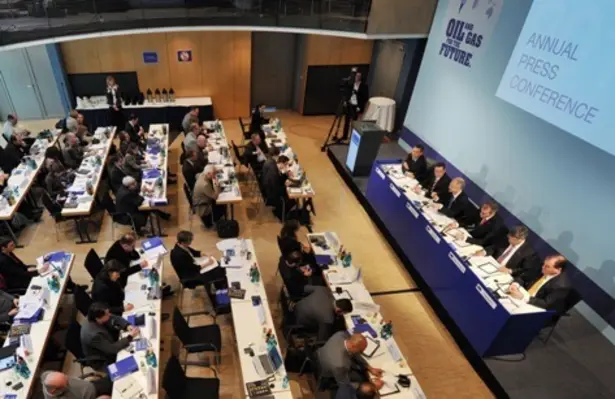German oil and gas company Wintershall has restated its commitment to post-Gaddafi development in Libya as it looks to ramp its oil production in the country back up to pre-revolution levels
Having resumed operations within Libya in October of last year, Wintershall has rebuilt its production levels up to 60,000 barrels per day (bpd) from its sites across the country.
The company has stated that its immediate aim was to increase production within the country to pre-revolution levels of 100,000bpd.
Wintershall Libya general manager Dr Uwe Salge told Oil Review Middle East that the company had received strong support from the new government and regional leaders.
“The focus is to re-establish pre-war production and there is a clear agreement among all players, including other oil producers and the state, to achieve this as fast and as efficiently as possible,” Salge remarked.
“The signals we are receiving from Tripoli and Benghazi is that everybody supports the oil industry and that it should be centrally organised.
“I see no signals that the country’s new leaders want to change this; even the leaders in the east of the country who want more federalism argue that certain sovereign structures should remain.
“They do not want to separate or divide the oil industry,” he added.
Salge said that the firm’s Libyan employees were taking a “more pragmatic” approach than before the revolution, with many people on the ground and in management roles now more willing to make quicker decisions.
At the company’s annual press conference in Kassel, Germany, Wintershall chairman of the board of executive directors Rainer Seele described Libya as a “test case” for the firm’s corporate activities in the Arab world, and said that Wintershall’s commitment to the North African country would make it more attractive to potential partnerships across the region.
“Libya is going to become more important as an investment market for us,” Seele remarked. “We did not abandon our staff [in the country] and they did not abandon us.”
Despite announcing increasing profits for 2011, the company’s overall production levels fell by 15 per cent, which Seele said was mainly due to the crisis in Libya.
The company’s expectant growth from its Nord Stream operations with Russian gas giant OAO Gazprom, as well as its growing interests off the coast of Norway, has allowed it to take a measured approach towards the stabilisation of its Libyan operations.
“Our activities in Libya have always been long-term and our contacts [within the country] date to before the Gaddafi era,” said Wintershall executive director for exploration and production Martin Bachmann.
“We deploy Libyan staff to sites around the world. Most of our staff in the country are Libyans and we will continue to train and invest in these staff.”
Assuming conditions remain stable, Bachmann said that Libya’s “enormous potential” would lead to Wintershall’s continued investment in the country.
The company has invested more that US$2 million in the country in the past five years, Bachmann noted.
Salge, who is based in Tripoli, added that Wintershall’s capacity within the country could enable it to produce the desired 100,000bpd within a couple of days, but that infrastructural issues needed to be rectified before it was possible to export the oil.
“At the moment we are dependent on rectifying certain infrastructural elements, such as pipeline repairs, but we cannot export such volumes at the moment as the pipeline is not able to sustain the necessary higher pressure we would need for that,” Salge said.
“Certain sections of the pipeline need to be repaired and replaced and we are in contact with the National Oil Corporation and the pipeline operators.”
Salge predicted that it would be at least another 12 months before the company was exporting 100,000bpm from the country.










